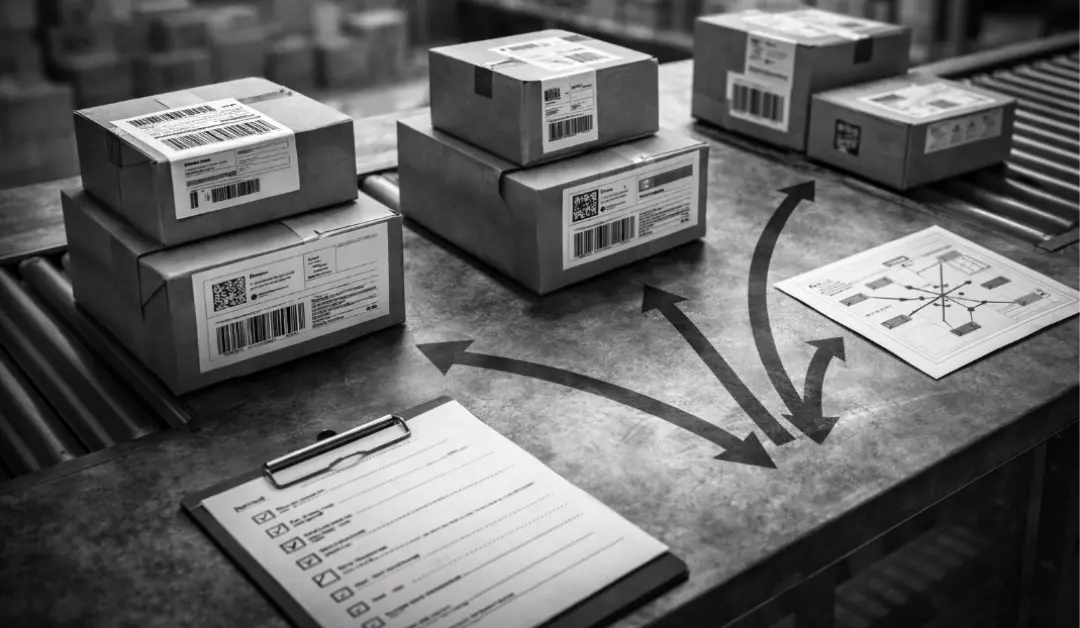Introduction
If you’re an e-commerce business owner, finding the right partner to handle your order fulfillment can be a game-changer. This is where a “pick and pack company” comes into play. In this guide, we’ll break down what these businesses are, the range of services they provide, the key differences between them and fulfillment operations, what you should look for when searching for the perfect fit, and valuable guidelines to make the selection process smoother for businesses of all sizes.
What is a Pick and Pack Company?
Let’s start with the basics: What exactly is a pick-and-pack company? Imagine you’re running a thriving online store, and orders are flooding in. Handling the storage of products, picking items from shelves, carefully packing them, and ensuring they reach your customers’ doorsteps promptly can become a logistical nightmare. This is where a pick-and-pack company steps in to save the day.
A pick-and-pack company is a specialized service provider that focuses on the crucial steps involved in fulfilling customer orders. They’re experts in efficiently selecting products from their warehouse, packaging them securely, and getting them ready for shipment. This expertise streamlines the order fulfillment process and helps businesses like yours deliver products to customers with precision and speed.
Services Provided by Pick and Pack Companies
So, what services can you expect? Let’s uncover the essential services they offer:
1. Receiving and Storage
Upon receiving your products, these companies store them in their warehouse facilities. They’re the guardians of your inventory, ensuring that your goods are safely and efficiently stored.
2. Order Processing
When a customer orders on your website or another sales channel, the pick-and-pack company’s system swings into action. They retrieve the ordered items from their well-organized shelves, ensuring they have the right products in hand.
3. Packing
Packing isn’t just about tossing products into boxes. Pick and pack companies meticulously package your items, using appropriate packaging materials to safeguard them during transit. Think bubble wrap, packing peanuts, and sturdy boxes!
4. Shipping
Next, they handle the nitty-gritty of shipping. They choose the best shipping method for each order, generate shipping labels, and arrange for prompt delivery to your customers. It’s like having your own logistics team.
5. Returns Handling (Optional)
Some pick and pack companies offer returns processing services. They inspect returned items, restock reusable products, and manage the returns process according to your return policy.
Now that we know what these companies do, let’s explore a common source of confusion: how they differ from fulfillment companies.
What’s the difference between a Pick and Pack Company vs. Fulfillment Company?
The terms “pick and pack company” and “fulfillment company” often get used interchangeably, but there’s a subtle distinction between the two:
1. Fulfillment Company
A fulfillment company is like the big sibling of a pick and pack company. While pick and pack services are a vital component of what fulfillment companies offer, they go beyond this. Fulfillment companies provide a comprehensive suite of services, including storage, inventory management, order processing, returns handling, and often even customer support. In other words, they handle the whole shebang of order fulfillment from start to finish.
2. Pick and Pack Company
A pick-and-pack company, on the other hand, zeroes in on the picking and packing aspects of order fulfillment. They’re laser-focused on the hands-on tasks of selecting products and preparing them for shipping. While they may offer additional services like inventory management and shipping, their core expertise lies in the pick-and-pack process.
Essentially, a pick and pack company is a specialized segment within the broader category of fulfillment companies. The choice between the two depends on your business’s unique needs and how much of your logistics operations you wish to outsource.
What Merchants Should Look for in Searching for a Pick and Pack Company
Now that we’ve clarified what pick-and-pack companies are and how they differ from fulfillment companies, let’s explore what you, as a merchant, should look out for when searching for the ideal pick-and-pack partner.
1. Experience and Reputation
Start by looking into the pick and pack company’s experience and reputation. Seek out providers with a proven track record and a reputation for reliability and customer satisfaction.
2. Specialization
Consider whether the company specializes in your specific industry or product type. Different industries have unique requirements and regulations, so finding a provider familiar with your niche can be advantageous.
3. Scalability
Flexibility is key. Ensure the pick and pack company can scale its operations to meet your needs, whether accommodating seasonal fluctuations or supporting your business’s growth.
4. Technology Integration
Check if the company’s technology systems seamlessly integrate with your e-commerce platform and other software. Integration streamlines order processing and inventory management, saving time and reducing errors.
5. Inventory Management
Efficient inventory management is a must. Inquire about the provider’s inventory control practices, including real-time tracking, stock counts, and replenishment strategies.
6. Shipping and Delivery Options
Consider the shipping methods and delivery options the company offers. They must meet your customers’ expectations, primarily if you serve a global market.
7. Order Accuracy
Accuracy matters! Check the company’s track record for order picking and packing accuracy. High precision is crucial for customer satisfaction and minimizing returns.
8. Returns Handling
If your business deals with returns, discuss the provider’s returns processing procedures, including restocking and customer communication. Efficient returns handling can save time and resources.
9. Customer Support
While pick and pack companies may not directly provide customer support, assess their ability to assist with customer inquiries regarding order status, tracking information, and shipping issues.
10. Location and Logistics
Consider the provider’s location concerning your customer base. Being closer to key markets can reduce shipping costs and improve delivery times.
11. Fees and Pricing
Understand the company’s pricing structure, including storage fees, pick and pack fees, and shipping rates. Be aware of any additional charges or hidden fees.

12. Service Level Agreements (SLAs)
Establish clear SLAs for order processing, shipping, and customer support response times. SLAs help ensure expectations are met.
13. Security and Compliance
If your products have special requirements, such as temperature sensitivity or regulatory compliance, ensure that the pick and pack company can meet these standards.
14. References and Client Testimonials
Request references or client testimonials to get insights into their performance, reliability, and customer satisfaction.
15. Communication
Communication is key. Discuss communication channels and protocols for updates on inventory, order status, and issue resolution.
16. Environmental Considerations
If environmental sustainability is a priority for your brand, inquire about the provider’s eco-friendly practices, from recycling to energy efficiency.
17. Flexibility and Customization
Negotiate flexibility regarding custom packaging, branding, and any specific requirements unique to your business.
18. Trust Your Instincts
Last but not least, trust your instincts. Clear, transparent communication from the outset can indicate a robust and reliable partnership.
Valuable Guidelines When Searching for a Pick and Pack Company
To wrap it all up, here’s some invaluable advice for merchants embarking on the journey of finding the perfect partner for their business:
1. Plan Ahead: Take your time to evaluate potential providers. Rushing the selection process can lead to costly mistakes.
2. Pilot Program: Consider starting with a small pilot program or trial period to assess the provider’s performance before committing long-term.
3. Legal Counsel: Review all contracts carefully and, if needed, seek legal advice to ensure you understand all obligations and commitments.
4. Communication Is Key: Establish clear lines of communication with your pick and pack partner. Effective communication is the foundation of a successful partnership.
5. Continuous Evaluation: Don’t set and forget. Continuously evaluate your pick and pack company’s performance to ensure they meet your evolving needs.
6. Flexibility Matters: Seek partners who can adapt to your business or industry changes, ensuring they remain a valuable asset as you grow.
7. Stay Informed: Stay up-to-date on industry trends and logistics innovations. This knowledge can help you make informed decisions and identify opportunities for improvement.
Conclusion
In conclusion, finding the right pick and pack company is a significant step toward streamlining your supply chain, enhancing customer satisfaction, and driving the success of your e-commerce business. By considering the factors outlined in this guide and following the advice provided, you’ll be well-equipped to make an informed choice and establish a partnership that benefits your business for years to come.




